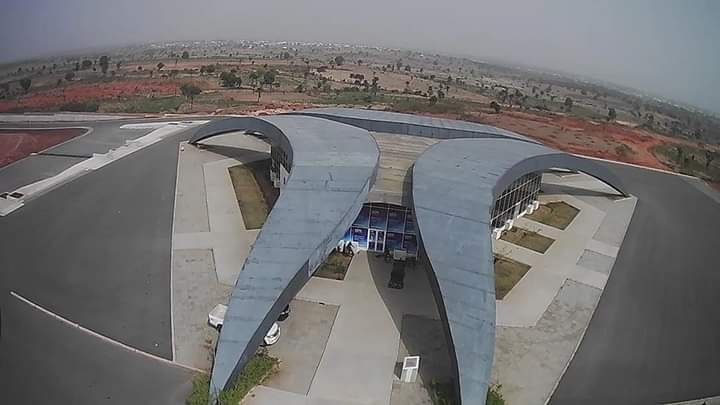Recently, one of the titles on the LEADERSHIP stable did an elaborate report on the state of the Lafia Cargo Airport, where multi-billion-naira facilities are rotting away due to neglect after the federal government’s formal takeover.
It is ironic that at a time when the nation is facing serious revenue challenges amidst high debt servicing costs and a projected budget deficit of N13.39 trillion—funding for the nation’s 2025 budget will be sourced from debt (69 percent), loans (28 percent), and asset sales (2 percent)—the government looks away as wastage defines the huge money spent on the Lafia cargo airport as is the case with most other state-owned airports
Three years after former President Muhammadu Buhari inaugurated the airport on February 24, 2022, it has yet to commence operation, to the consternation of the state’s residents.
There is no contesting the fact that viable airports have the potential to serve as veritable platforms for socio-economic development by aiding the transportation of passengers, other goods and services.
An airport must have enough traffic to generate economic growth and be deemed viable. That also raises the question, is building a cargo airport in Lafia or any state capital for that matter a viable venture? The fact that Nasarawa has arable land suitable for cultivating different agricultural products is not in doubt. It is also home to numerous solid mineral resources, which abound in large quantities.
While farming has not received the deserved attention, with herdsmen’s activities and other pockets of security challenges acting as a disincentive, the largely untapped mineral resources are being mined illegally. Both of these factors cannot make room for cargo traffic. The state is not unaware of this fact; hence, it appealed to the federal government to take over the airport.
Regarding viability, Nasarawa, in particular, does not need an airport—maybe in the future, but certainly not now. Like most Nigerians, we believe that the idea of building the airport was wrong, and the money expended on it could have been channelled to other critical sectors like health, education, and even manpower development. But all that is now over with the federal government’s takeover.
We recall that last year, President Tinubu sought and got the National Assembly’s approval to refund the Nasarawa State Government N9 billion for the construction of the Airport. Findings show that the state has yet to receive the money.
However, beyond the takeover, we enjoin the federal government to do all it takes to put this airport into use to get value for the vast funds so far spent. But even as we are optimistic about the government’s ability to do the needful, we have reservations.
The pervading concerns stem from the reality that even the federal government faces serious revenue challenges amid contending demands. Spending lean resources on obviously unviable airports is certainly not a priority.
We still cannot understand the logic of state governments establishing airports when the existing ones are not economically viable. Some Nigerian states, including Nasarawa, have spent over N150 billion on airport projects that are clearly unviable.
Recently also, we had cause to reflect on and utterly condemn the massive waste of resources in Ebonyi State under the administration of Governor David Umahi for the building of Chuba Okadigbo International Airport, which, like most such airports, is clearly unviable.
The statistics of airport viability in Nigeria are appalling. Only three of the nation’s 22 airports contribute significantly to export and import revenue.
We recall that last year, the Managing Director of Federal Airport Authority-FAAN, Olubunmi Kuku, disclosed that Murtala Muhammed International Airport, Lagos; Nnamdi Azikiwe Airport, Abuja; Aminu Kano International Airport, Kano; and Port Harcourt International Airport contributed N529.68 billion in exports and N5.05 trillion in imports between January 2020 and March 2024.
Kuku said the remaining 19 airports are subsidised because of insufficient passenger traffic and rising operational costs. In a country where 19 out of the existing 22 airports are being subsidised, how come the people watch idly while governors indulge in a money-wasting spree under the guise of building new airports?
In our considered opinion, the federal government’s takeover of these airports from the state governments is one reason why states still build airports, most of which are done without serious thought about their viability. Perhaps it is time for a law to ban the federal government from taking over airports built by states.
Building airports by state governments is usually influenced not by economic considerations but by political shadow-chasing, which also dictates other white elephant projects that gulp scarce resources. The unfortunate aspect of this resource-depleting enterprise is that projects urgently needed by the people are sacrificed on the altar of political leaders’ drive to massage their senseless ego-boosting inclinations.
Even worse is the corruption embedded in the planning and execution of these projects. This makes it imperative that lawmakers enact statutes that make the conditions for building airports and other nonessential projects more stringent by insisting that their economic relevance and viability be clearly stated in the feasibility study.





